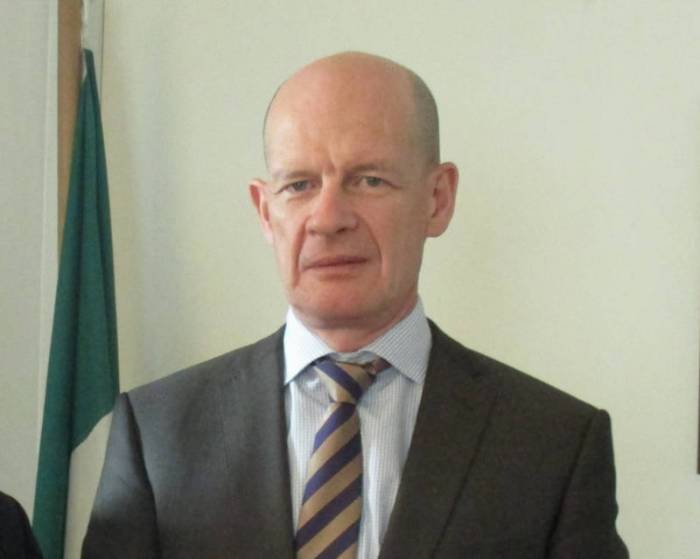
The Ambassador of Ireland to Nigeria, Sean Hoy, has said external forces took advantage of the then local Boko Haram conflict for their wider agenda.
This was so because according to him, Boko Haram grew to deadly proportion because of Nigeria’s failure to tackle the once local conflict.
Ambassador Hoy stated this while delivering a lecture at Ahmadu Bello University (ABU), Zaria on Thursday.
He noted that Nigeria can learn from the Northern Ireland peace process in its attempts to address the various crises bedevilling Nigeria.
The Diplomat who spoke on the subject; “Road to Peace – Lessons from the Northern Ireland Peace Process”, however, said that the future of Nigeria is bright and there is light at the end of the tunnel.
While responding to comments at the end of his presentation that Nigeria’s situations were more complex than Northern Ireland’s, the Ambassador said, “that Nigeria’s situations are more complex does not mean that nothing should be done about them.”
He said, the longer you leave something, the more complex it becomes, arguing that, if Boko Haram had been tackled in 2009, it would not have become complex and widespread.
According to him, “In 2009, Nigerians knew who the Boko Haram actors were in Borno; you knew who to talk to, but that did not happen. Now, the vacuum has been taken over by others, including bandits and external people who are not Nigerians at all and it became complex.
“The current conflict in the North-East arguably began when a local conflict within Borno State, which could have been addressed better at that time was not well handled, most of us will agree with that. The conflict now spread to the entire region. It has become complex and created a vacuum for others to exploit. These external forces driven by wider agendas are keen to manipulate local unrest,” the Ambassador said.
Speaking on the current, herdsmen/farmers clashes, the Irish envoy said, climate change is one of the major causes of the crisis.
He, however, stressed the need for dialogue as a major solution to the various crises in Nigeria, explaining that dialogue played a major role in the peace process of Northern Ireland.
Earlier, the Vice Chancellor of Ahmadu Bello University, Professor Ibrahim Garba, said, understanding the root causes of conflicts bedevilling the country was essential to providing solutions to them.
The Vice-Chancellor who was represented by the Deputy Vice Chancellor Administration, Professor Kabir Bala said the university is at the centre stage of providing solutions to the country’s socio-economic crises, hence the public lecture.
The lead paper discussants, Dr Abubakar Sadique, Dr Muhammad Kabir Isa and Dr Mohammed Lawal Tafida bared their minds on the presentation and its relevance to Nigeria’s situations.
Dr Sadique while taking on the farmers/herdsmen crisis, said both parties are victims of armed bandits, who are making farmers and herders clash for no reason.
In his own remarks, Dr Isa said since dialogue had paid off in the rescue of many of the Chibok girls and other captives of the Boko Haram insurgents, the government should address the situation with dialogue to end the insurgency, rather than spending millions to execute the war against it.
However, Dr Tafida opined that citizens taxation is the solution to Niger-Delta unrest, arguing that, people vandalised public assets because they don’t see it as their own property. He, however, argued that, if citizens pay tax, they are naturally bound to protect their investments in the public assets.







